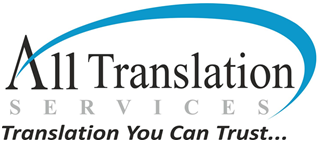Growing Need for Legal Translation Services in Canada
___Looking for a legal translation company in Toronto in Arabic, Canadian French, Chinese, Czech or Danish language? Our Brampton translation company will be happy to help you.
Demand Factors for Legal Translation in Canada:
Multilingual Society: Canada is known for its diverse population, with a significant number of people speaking languages other than English and French. This diversity creates a strong demand for legal translation services to ensure that legal documents and proceedings are accessible to all.
Immigration and Citizenship: Canada’s immigration system brings in individuals from around the world. Legal documents related to immigration applications, residency status, and citizenship often need to be translated for government and legal purposes.
Business and Trade: Canada engages in international trade and business transactions. Agreements, contracts and legal documents related to cross-border trade often require translation to facilitate clear communication between parties.
Indigenous Languages: Canada has Indigenous communities with their own languages. Legal documents related to land claims, treaties, and other matters concerning Indigenous rights may require translation to and from these languages.
Legal Proceedings: Legal cases involving individuals who speak different languages may require translation of court documents, depositions, witness statements, and other legal materials.
Potential Statistics and Trends
Language Pairs: The demand for translation services in Canada likely includes a wide range of language pairs involving English and French as source or target languages. Popular languages like Chinese, Punjabi, Spanish, Tagalog, Arabic, and others are also likely to have significant demand.
Industry Growth: With globalization and increasing immigration, the demand for legal translation services was likely experiencing steady growth.
Technology Integration: Advancements in translation technology, such as AI-assisted translation tools, might have been playing a role in improving the efficiency and accuracy of legal translations.
Quality and Certification: Legal translation often requires high levels of accuracy and adherence to legal terminology. Certified translators may be in higher demand due to the legal implications of the documents being translated.
Remote Work: The COVID-19 pandemic could have influenced the adoption of remote translation services, allowing translators to work from home and clients to access services digitally.
Legal Document Types: Legal translation likely covers a range of document types, including contracts, court documents, immigration forms, intellectual property documents, and more.
Please note that the information provided is based on trends up to January 2022. For the most recent statistics and insights regarding the demand for legal translation in Canada, it is advised to consult industry reports, market research and government sources.
